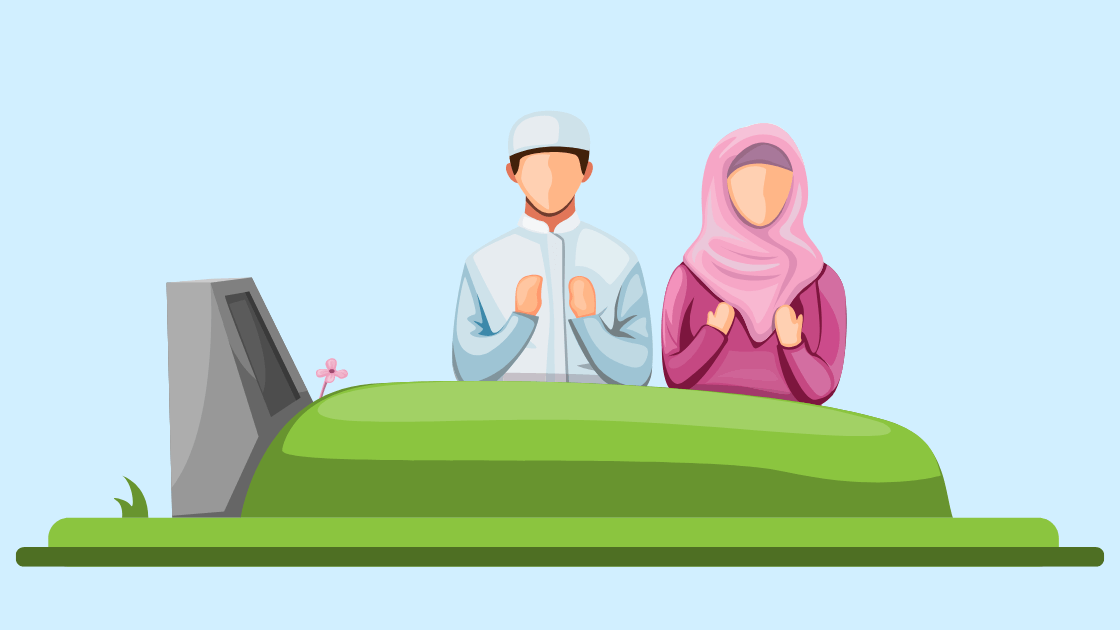Islamic funerals are community events that include group prayers for the deceased whose soul has gone to the afterlife and encouragement for the living. The funerals and burial happened quickly after a ritual washing of the body; there is no cremation. Islamic funeral etiquette dictates the expression of grief.
Muslim funerals are different than those of other faiths. Not surprisingly, Islamic funeral etiquette is unique as well.
One difficulty often faced by Muslims in the United States is to find a funeral home with a funeral director who is educated and experienced in how to appropriately handle a Muslim who has passed away. The customs for preparing the body and other Muslim funeral traditions are complex and need to be adhered to out of respect to the Muslim community.
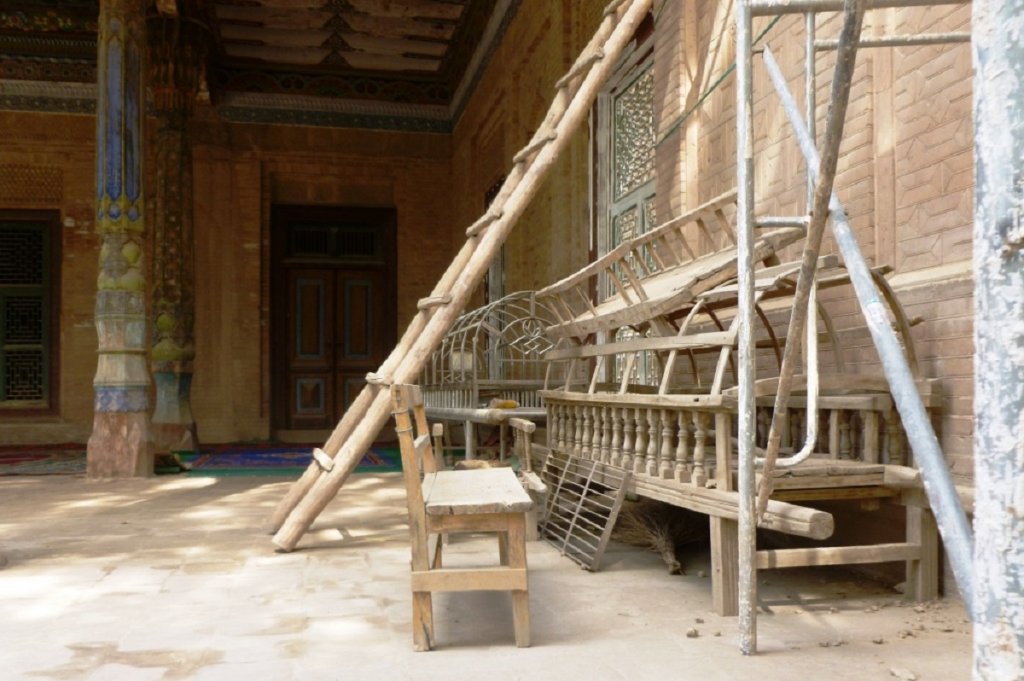
Table of Contents
Traditions of Burial Preparation In Islam
There are many standards when an Islamic person passes away. Follows of Islam are called Muslims, so an Islamic funeral and a Muslim funeral are one in the same. If the family knows that a Muslim family member is nearing death, according to the Islamic faith, they try to be certain their loved one is surrounded by family.
They hope to spend their loved one’s last days with them and help them to shadaha, where they confirm their belief that there is no God but Allah. This is why a dying person is usually surrounded by people when they die. When their loved one dies, relatives close their eyes and mouth, then cover the body with a sheet. They make a dua or supplication to Allah, asking the almighty to forgive all of the sins of the deceased.
Muslims do not believe in cremation, embalming the body, or having any type of cosmetic work done on the deceased person. They also do not want an autopsy done unless it is mandated by law.
The body is prepared for burial by being washed (Ghusl) and put into a shroud (Kafan). The washing is typically done by same-sex family members or by the spouse of the deceased. The body needs to be washed at least three times. The body can be washed more times if it still is not clean; however, the number of washing has to be odd.
There is an order of washing the body: upper right side, upper left side, lower right side, lower left side. If the deceased person is a woman, her hair is washed and put into three braids. After the body is cleansed, it is shrouded in white sheets.
The deceased person’s left hand is to rest on their chest, and the right hand is to be placed on the left hand. This is to mirror the position of prayers. Sheets are folded over the body, first the right side and then the left. Finally, the shrouding is secured with ropes: one tied above the head, two around the body, and one at the feet.
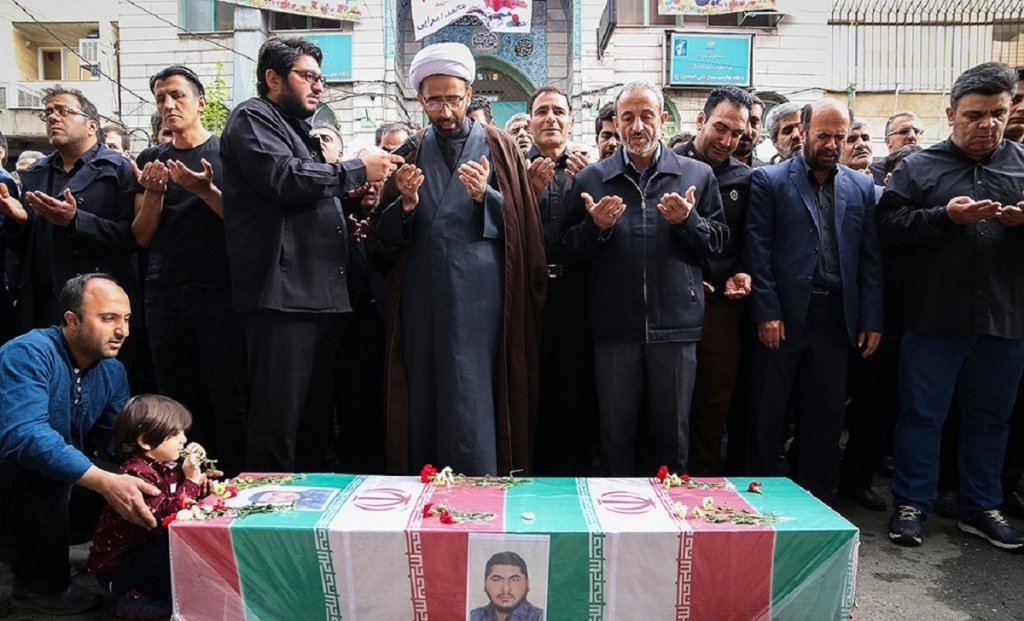
Once the body is thoroughly prepared, it is transported to the mosque for the funeral prayers. These prayers are called Salat al-Janazah.
Muslims are told to wear gloves while washing the body and to cleanse themselves thoroughly. More specifically, Muslims who participate in this Muslim burial custom are told to bathe after washing a deceased person.
What Do You Do At An Islamic Funeral?
There is no wake for Muslims. At the Muslim funeral service, the funeral prayers (called Salat al-Janazah) are to be performed by all of the community members. The prayers are usually performed either in a prayer room, study room, or in the courtyard of the mosque rather than inside the mosque itself.
Everyone participating in the praying faces the qiblah, which means to look toward Mecca. Those in attendance are expected to participate in the prayers which come from the Quran.
What Is The Islamic Funeral Prayer Called?
The funeral prayers are called Salat al-Janazah. The Muslims in attendance say these prayers as a way to ask for pardon for both the deceased person and all departed Muslims. The prayers include the Takbir, which literally means “Allah (God) is the greatest.” This prayer is recited four times. For more information on Muslim Funeral Readings, check out this article.
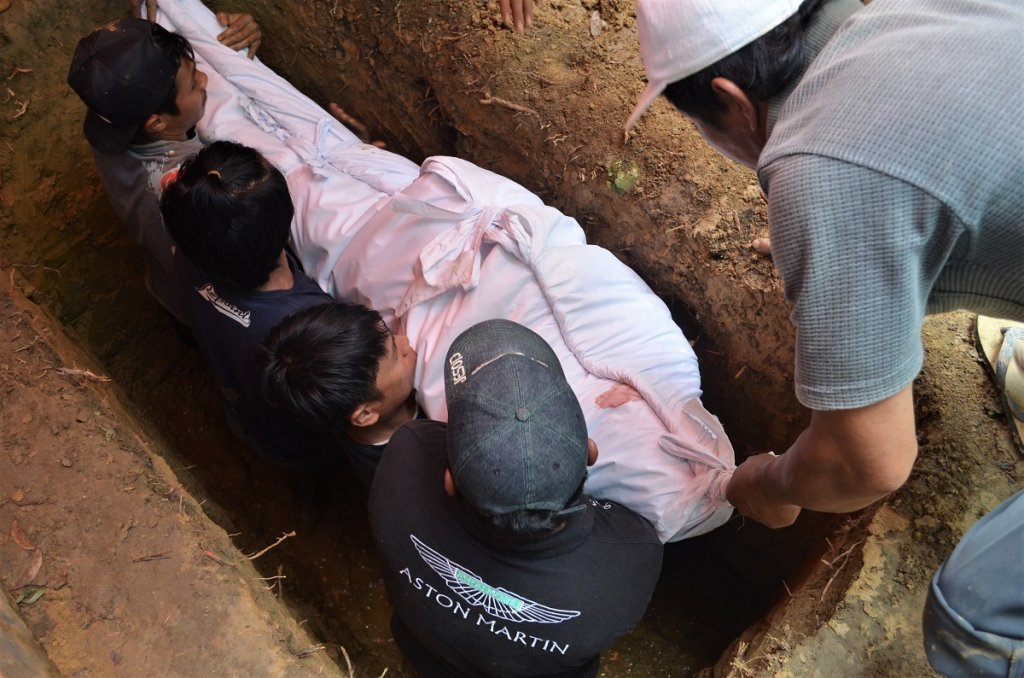
Muslim Burial
In the most traditional Muslim funerals, only men were allowed to be at the gravesite. In some communities today, women are now allowed to be at the burial. Graves are dug perpendicular to the qiblah, and the body is placed on its right side. As they place the body in the grave, they recite, “Bismillah wa ala millat rasulullah“ (“In the name of Allah and in the faith of the Messenger of Allah”).
After placing the body in the grave, a layer of stones is placed on top of the body to keep the soil from touching the body. According to Muslim custom, the body is not placed in a casket or coffin. After the protective layer is in place, each mourner will place three handfuls of soil into the grave.
Traditionally, the immediate family can put a small stone or other marker at the grave, but not a large monument of any kind.
The Three-Day Mourning Period?
For three days, the family will receive guests who wish to come and offer their condolences. The period of mourning, called the Hidaad, starts as soon as the person dies and lasts for three days. During this time, it is customary for friends and distant relatives to bring food items to give the family of the deceased one last thing to worry about.
It should be noted that if you plan to bring food to a Muslim family who is grieving, be sure you understand their dietary requirements. If you are unsure, ask for help. Their dietary laws require Muslims to eat foods that are halal or permissible.
For some family members, the mourning period lasts longer than others. For example, Muslim women who are widowed mourn their deceased husbands for four months and ten days.
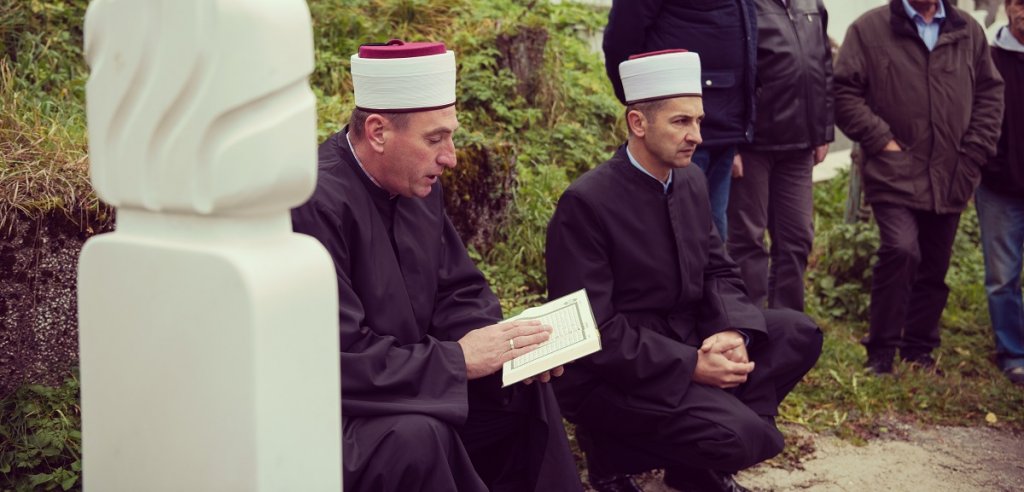
What Do You Say When Someone Dies In Islam?
If a Muslim friend or coworker loses a loved one, there are some things to say:
- “Surely we belong to Allah, and to Him shall we return.”
- “I pray the love of Allah enfolds you during your difficult times.”
- “Allah is always merciful towards people who believe in him.”
- “May Allah grant him/her eternal peace.”
What Are Some Islamic Funeral Etiquette Rules?
Wondering what to wear? Although white is a common color to wear to a Muslim funeral, it is also appropriate to wear gray, black, or another somber color. Women should wear an ankle-length skirt, a long sleeve shirt, and a head scarf. Even non-Muslim women should dress very conservatively and adhere to traditional dress as much as possible, as Muslim women will only show their faces and hands. Do not wear makeup.
Men wear long pants and long sleeve shirts, also in white or dark colors. Button your shirt all the way up to the top. Do not wear bright colors or anything flashy to a Muslim funeral.
There is no wake at a Muslim funeral. Muslims try to bury their dead within 24 hours of death. Don’t expect to have a wake or hear a eulogy.
Although for the dead at a Muslim funeral, you should not wail loudly or make any type of spectacle of yourself.
It is not customary for guests to bring or send flowers to the family or to a Muslim funeral.

